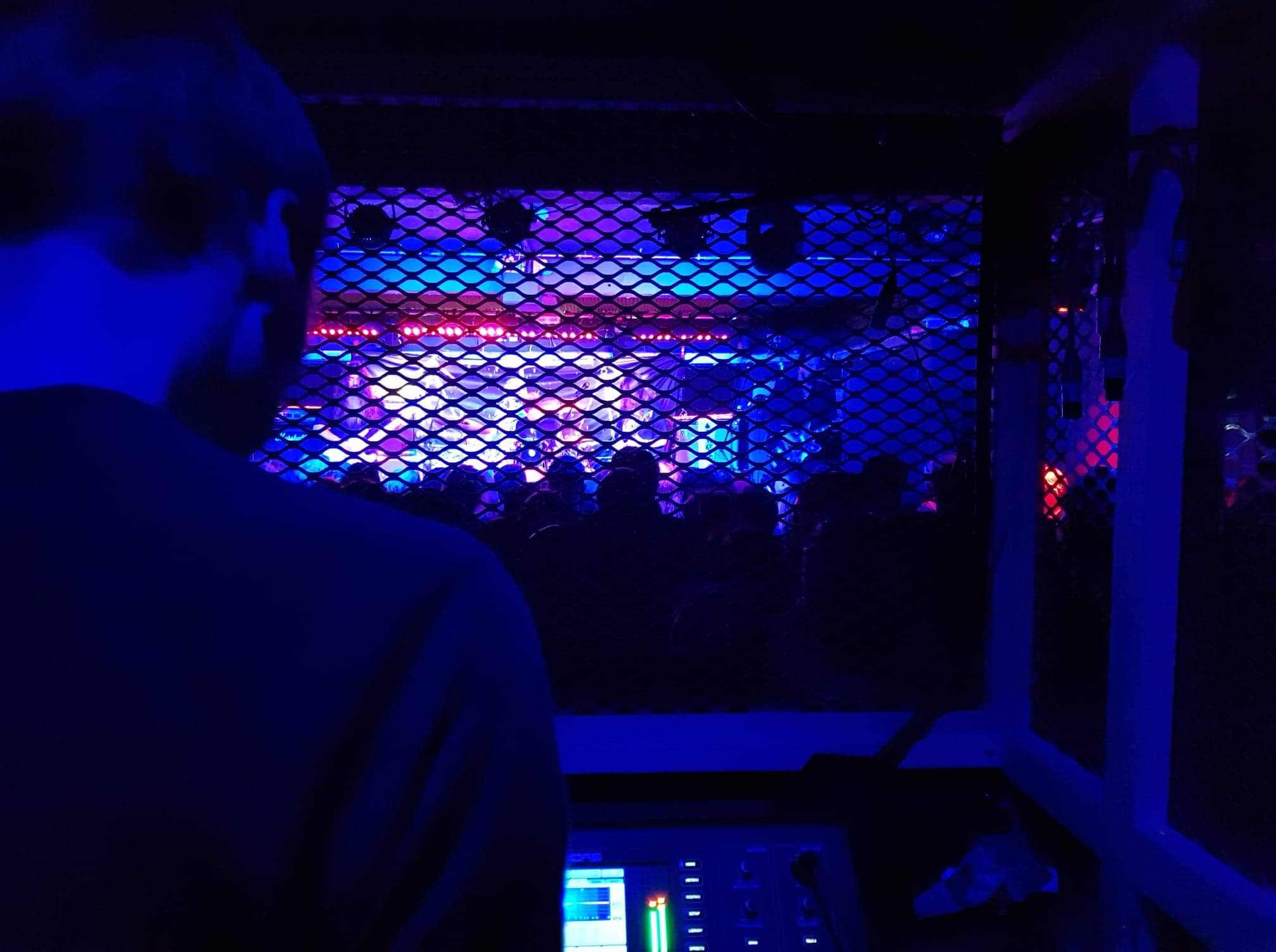The Pineapple Thief's Bruce Soord talks new album Versions Of The Truth, Gavin Harrison and his 5 tips for musicians
“Having someone as creative as Gavin Harrison on board, I would be a fool not to utilise that in the songwriting as much as I could"

Want all the hottest music and gear news, reviews, deals, features and more, direct to your inbox? Sign up here.
You are now subscribed
Your newsletter sign-up was successful
“Shortly after we finished our album Magnolia in 2014, our drummer left the band and I thought that this might be a good time to knock it on the head.” This rather frank self-assessment comes early in our chat with Bruce Soord, who has been the singer, guitarist and creative driving force behind UK progressive rock group The Pineapple Thief since 1999.
Bruce is talking to MusicRadar about his band's upcoming thirteenth studio album – Versions of the Truth – as well as recapping their fascinating history, sharing his tips on how to most efficiently use technology to create, and detailing how an unlikely collaboration with one of progressive rock's most revered drummers gave the band a new lease of life when they were on the verge of calling it a day, as well as giving Bruce his first true creative collaborator.
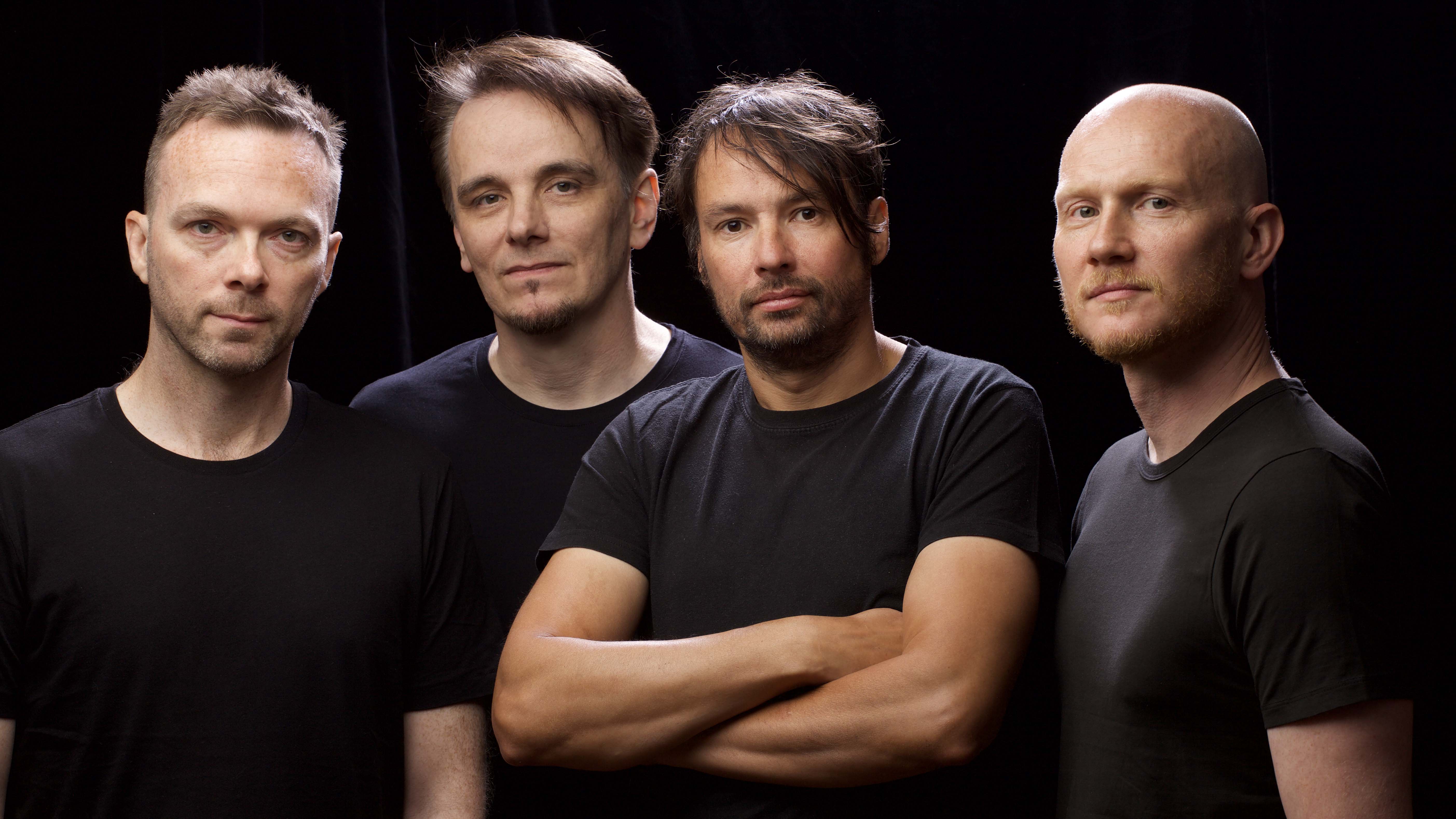
“In the early days of The Pineapple Thief, I did everything.” explains Bruce. “ I wrote the songs, played guitar, used a sampler for the drums – Even played the bass in the way a guitarist does, using a plectrum, and just got through it so I could release albums. I put everything together in my home studio in my spare time whilst having a day job, so there was a very different vibe back then. I wouldn't say it was a hobby, it was more of a passion, but it certainly wasn't a profession like it is now.”
“It was one of those moments, more of an existential crisis, over whether it was worth carrying on"
As offers began to trickle in to perform at festivals around mainland Europe, Bruce recruited other musicians to help him bring his music to life onstage. Members came and went, but things would become relatively stable with Jon Sykes on bass and Steve Kitch on keyboards.
The band would go from strength to strength, signing with Kscope in 2008, but after 15 years, 10 albums and the departure of their drummer, Bruce was still working at his day job and the band were left feeling like they'd hit a glass ceiling.
“It was one of those moments, more of an existential crisis, over whether it was worth carrying on. But ultimately, we agreed to write one more record. I was toying with the idea of using a drum machine then the label suggested getting in touch with Gavin Harrison.”
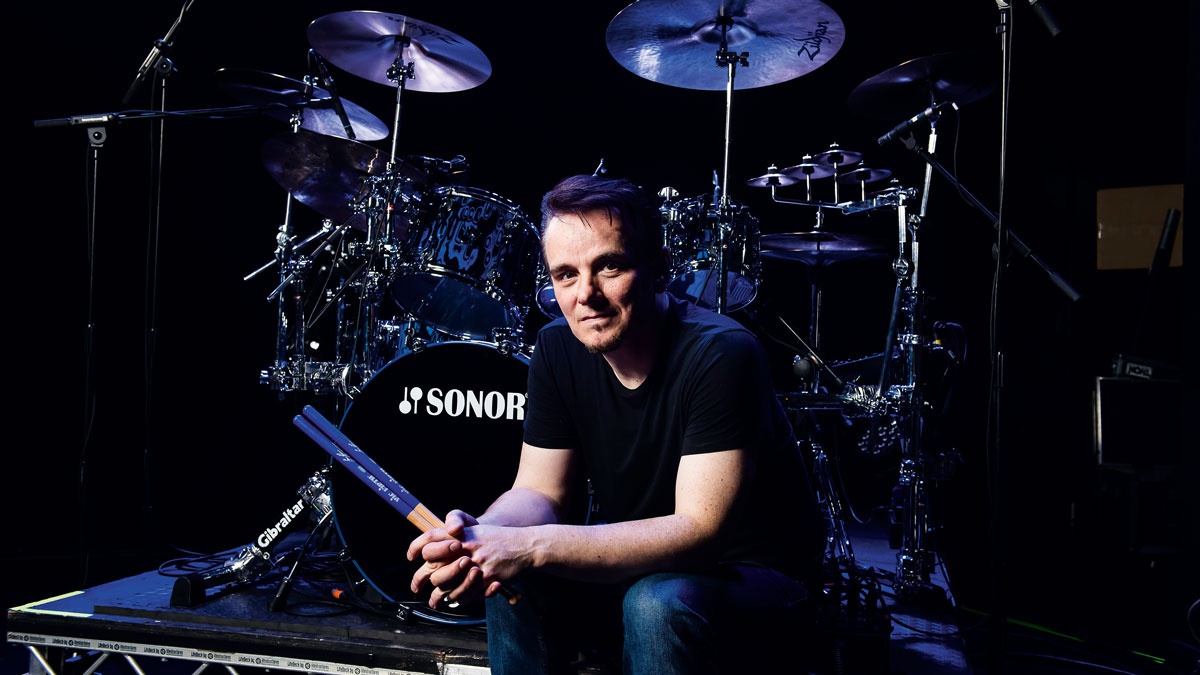
"We knew Gavin from Porcupine Tree, and it didn't really cross my mind that he would be willing to drum for us"
Best known for his work with Porcupine Tree and King Crimson, Gavin Harrison is also a prestigious session drummer who likes to take on projects that he feels that he can add something to creatively, rather than as a work for hire drummer.
Want all the hottest music and gear news, reviews, deals, features and more, direct to your inbox? Sign up here.
“We knew Gavin from Porcupine Tree, and it didn't really cross my mind that he would be willing to drum for us. But at this point we had absolutely nothing to lose so we sent him a demo. “
As it turns out, Gavin had an instant connection with the songs and agreed to play drums on the album. The result of this collaboration would be 2016's Your Wilderness – An album that Bruce admits instantly raised the profile of the band.
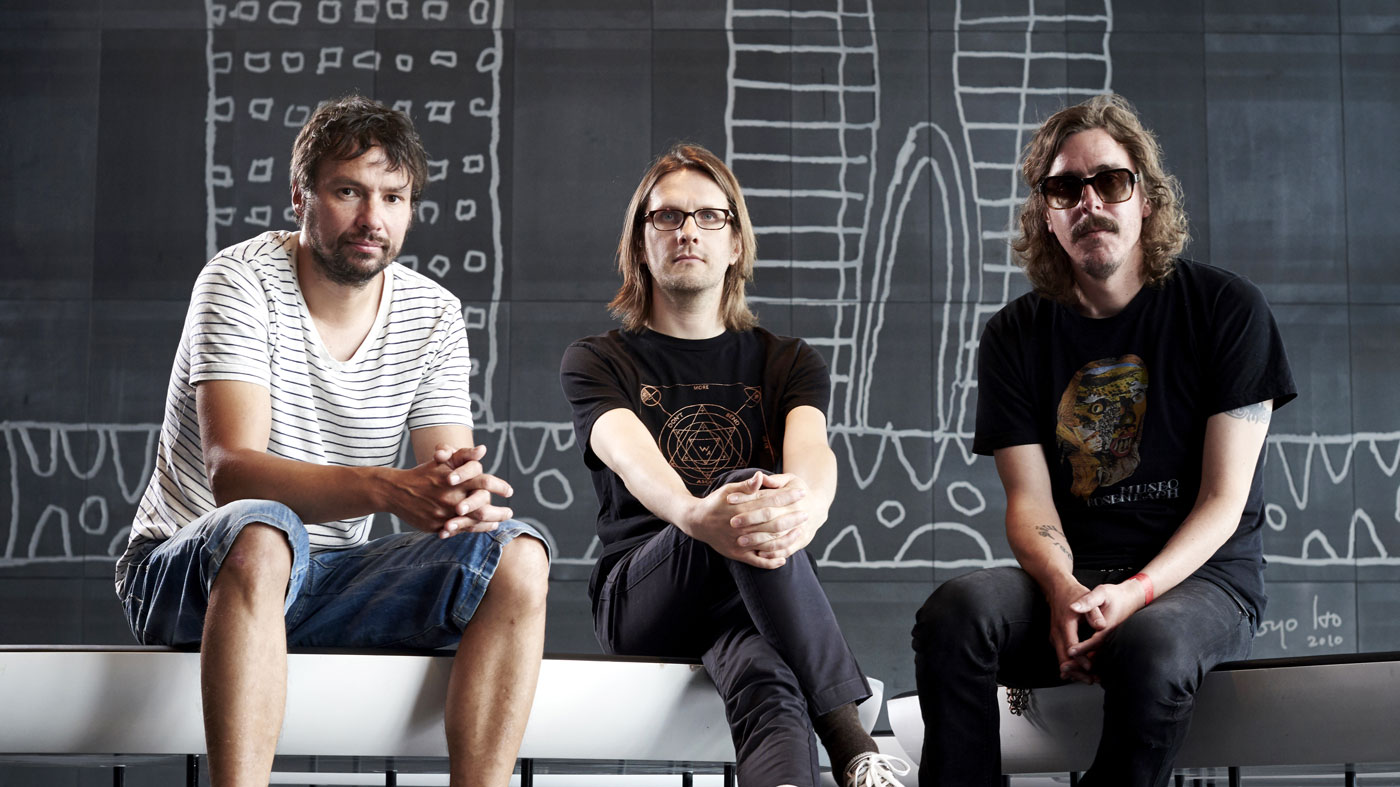
Steven Wilson, Mikael Akerfeldt and Bruce Soord in conversation
“Relatively speaking, that album went through the roof. It was at a point where none of us really thought or cared about making a living out of the band as we had been doing it for so long, and then all of a sudden it landed on our doorstep that we could do it. I could give up my day job, and that is the point where things really changed.”
Talking to Bruce, it is evident just how much he credits Gavin becoming an official member of the band with this recent upswing of both inspiration and profile, painting the picture of a band that has very much settled into a comfortable rhythm.
“Having someone as creative as Gavin on board, I would be a fool not to utilise that in the songwriting as much as I could. Gavin doesn't just play drums, he's a very musical guy who chops up the ideas that I send him and restructures them, and can play a whole host of instruments. On Versions of the Truth, he is even playing Marimba.”
"The beauty of having a collaboration is that the songs go off in all kind of directions that you would never dream of on your own"
“I'd come up with an idea on guitar first. Perhaps a verse or a chorus, and then I will send it to Gavin before taking it too far. Gavin would send it back and he'd have chopped and changed sections around, putting a couple of bars of three in here, and a couple of bars of seven there. The beauty of having a collaboration is that the songs go off in all kind of directions that you would never dream of on your own. “
“Jon and Steve, they gradually got more of an input as time went on – Especially with regards to production. The songs would always go through them and they'd certainly help develop them, but it wasn't really until Gavin that the band had the first true co-songwriter.”
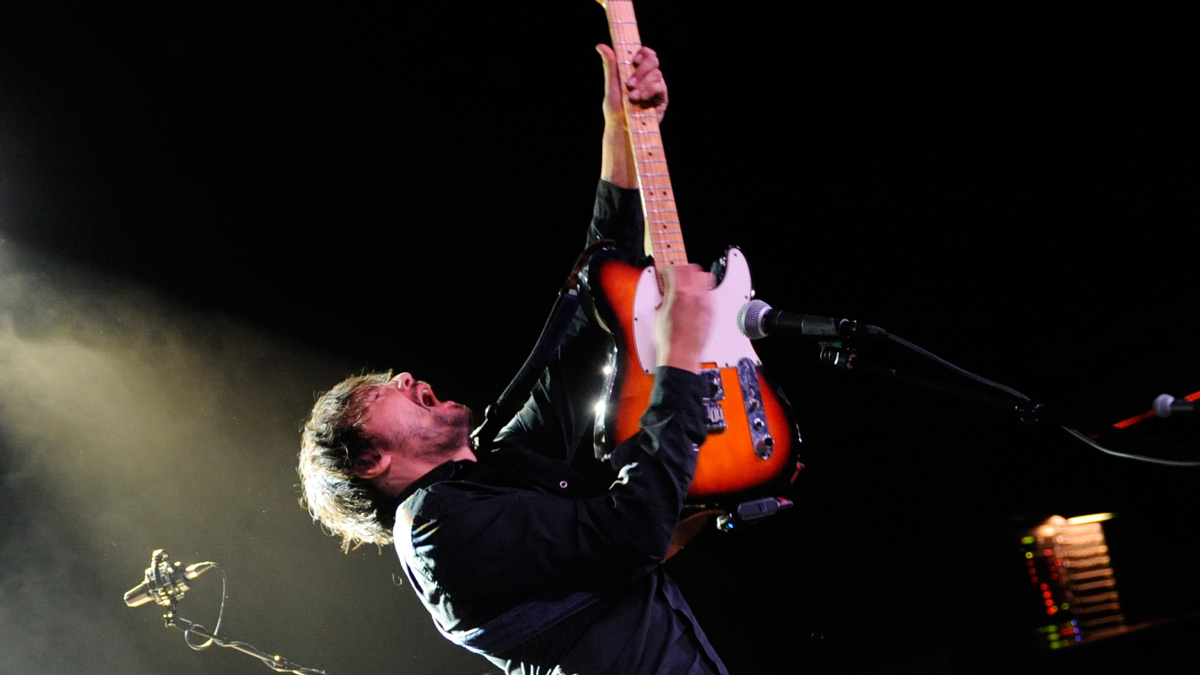
The Pineapple Thief’s Bruce Soord: 10 guitar albums that blew my mind
Versions of The Truth is their third album with Harrison behind the kit, and Bruce feels very comfortable with the band's place in the world. “It feels almost like we have done things backwards with The Pineapple Thief. We've taken 20 years to really break through, and we are all a bit older and more chilled out these days so we are just really happy with what we've got.”
Read on as Bruce draws on his experiences making this album and creative habits to share some valuable insight for musicians…
1. Keep working, even in isolation
"Things evolve and change and you hone your methods of working in a way that brings out your creativity most efficiently"
“Recently we've had to cancel our touring plans due to the Covid-19 pandemic, and rather than sit on our asses we've decided to use the time to work on new material."
“Things evolve and change and you hone your methods of working in a way that brings out your creativity most efficiently. We finished the record this year and delivered it in May, right at the height of the dreaded pandemic.
"So working in a more isolated way didn't really affect us. Even now, we seem to be really focused and are able to have the foresight required to start writing new material almost immediately after the release of an album.”
2. It's good to become creatively self sufficient
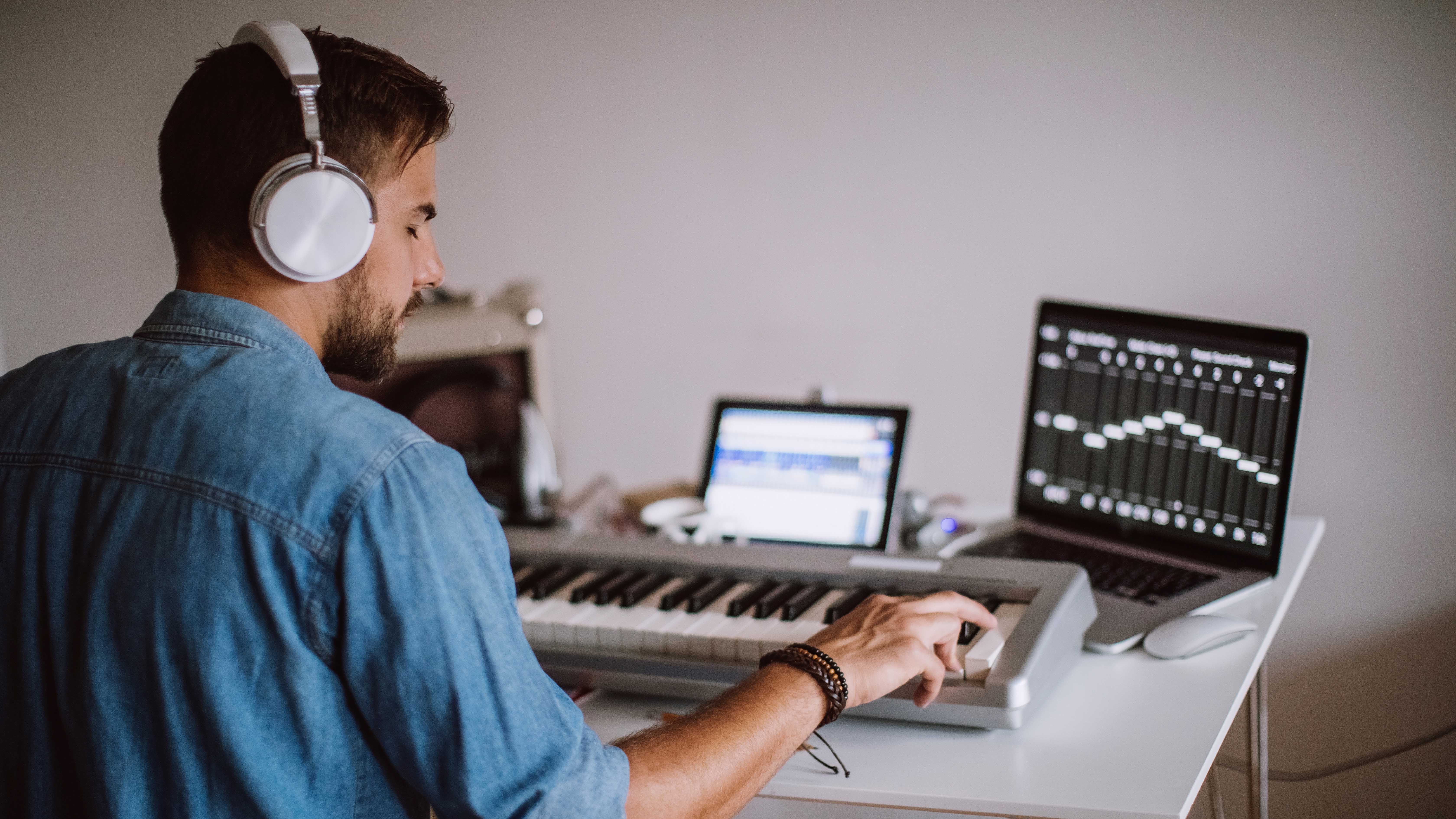
Produce your own music for less with these budget home studio setups
“I'm talking to you now from the studio which is in the attic room of my house. Over the years it has developed into a really nice, high spec studio and the beauty is that all I need to do is track vocals, acoustic guitars and electric guitars here. The electric guitars all go through my Kemper.
"The acoustic is recorded with a stereo pair of microphones which go through a nice pre-amp and a nice converter, and that's really all you need to get really top quality audio. Obviously you need to know how to mix too, but that's something I have learned over the years.”
“The beauty of having Gavin in the band is that his house is like a Tardis – You walk inside and there's this huge drum room. His drum kit is permanently set up with the best mics you can ask for permanently in place on his kit.
"You wouldn't want to go to a recording studio because he has everything perfectly set up in his house. Our keyboard player Steve runs a mastering business from his house in Exeter, so he has a brilliant room in his attic too. Being able to do it all in house like this really helps the creative process. ”
3. Songs are more important than egos
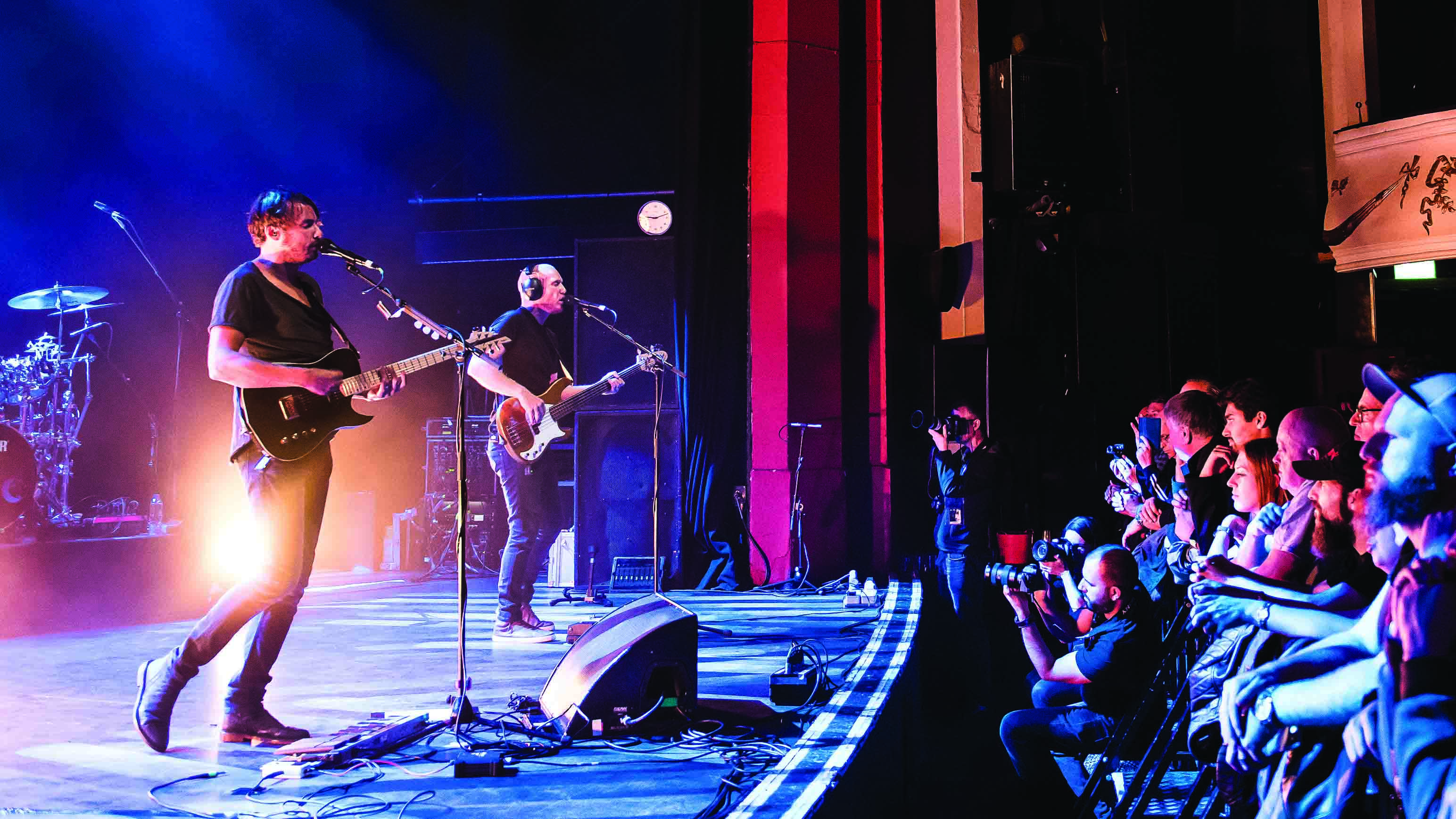
“There's no arguments, there's no egos, nobody takes offence when ideas are changed or dropped or developed to be different from what they were"
“I think Gavin finds the chemistry that we have to be quite refreshing. Being a session drummer who has played with as many bands as he has, I think he knows what it feels like to be involved in a band that has tension between the members and how toxic that can get.
I think that almost seems to be more like the norm these days, sadly, for there to be an element of conflict and toxicity in a band when you are so ambitious and want more than to just make a good record. You want to be commercially successful – they want a constant upwards progression of bigger albums, bigger gigs, bigger tours and I think that is where things can get in the way.”
“There's no arguments, there's no egos, nobody takes offence when ideas are changed or dropped or developed to be different from what they were – You know, the horrible arguments you can have in bands when people get attached to a part that they wrote and get upset if nobody else likes it!”
4. Try new approaches as a band

"Having this 'Zoom culture', whilst it is great in some ways and has its benefits, it's simply not the same as being in the room and I think the same applies as having a jam in a sweaty rehearsal room"
“Before the whole pandemic kicked off, we were planning on getting the band together at Gavin's home studio for five days and just seeing what happened. We know that our current way of working together is effective, but it would be interesting to see what would happen if we go up with no preconceptions and just see what comes out.
"I'd probably have to go into it having done a little bit of preparation and take a couple of ideas with me, but it might be interesting to see how different the writing process is when you can bang ideas back and forth instantly and see how that develops.
“Having this 'Zoom culture', whilst it is great in some ways and has its benefits, it's simply not the same as being in the room and I think the same applies as having a jam in a sweaty rehearsal room. You get a vibe from it that you may otherwise not have working in a more isolated way. It is something that, when we are all allowed to mingle again, we would like to try for the next record.”
5. Give the songs some space
"Gavin would always say this about Porcupine Tree, they would have a couple of jams which would be good - but after a couple of hours they might find that they've just been jamming a riff, a sequence, playing in E or something, and it would be very difficult to actually develop an idea into a song without going away to think about it. Coming back to bring some words or chord changes can make a big difference."
"Obviously you can't force it, but if Gavin can just send me something and I can listen to it at home, replay it a few times, I can sleep on it and consider different approaches before committing to anything and then send it back.”
The Pineapple Thief's new album Versions Of The Truth is released via Kscope on 4 September. To preorder click here
Sam Drower is a sound engineer, musician and all-around music junkie based in Bristol, UK. He began contributing to MusicRadar in 2020, when the global pandemic brought live music to a screeching halt. When not behind the mixing desk for various bands, he is playing bass for blackened mathcore group Host Body.
